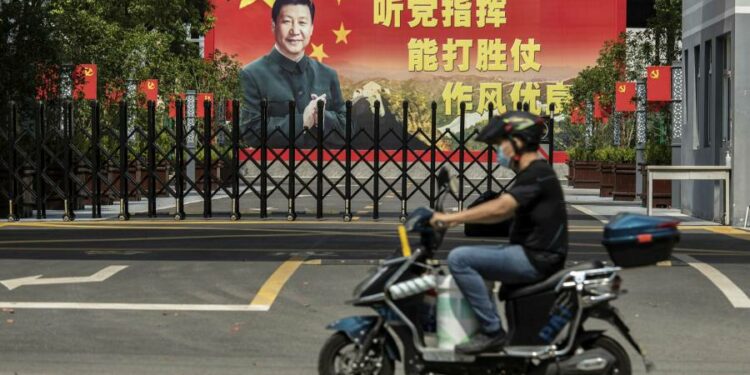Australian pension funds are pulling back from Chinese listed equity markets on concern that President Xi Jinping’s “common prosperity” policy has heightened the risk of government interference in the private sector.
Senior pension executives told the Financial Times they feared that under the policy, launched last year by Beijing with the aim of achieving fairer distribution of wealth, the government could destroy entire sectors “with the stroke of a pen”. They pointed to crackdowns on private tutoring, property and tech companies that had wiped billions of dollars off their market value.
“We just felt that [with] the reforms that have taken place, it’s just become too risky as a direct play,” said John Pearce, chief investment officer of UniSuper, one of the country’s biggest superannuation funds with A$105bn ($77.1bn) under management.
Australia’s pension groups, which are consolidating into a handful of megafunds, are becoming more active globally and their investment decisions are being closely watched by the industry.
Australia’s total retirement savings pool has grown to A$3.5tn, the fifth-largest in the world behind the US, Japan, the UK and Canada, according to consultancy Willis Towers Watson.
UniSuper was until recently one of relatively few funds that had dedicated exposure to China. But Pearce said it had cancelled its direct China mandates.
“We just felt that [with] the reforms that have taken place, it’s just become too risky as a direct play,” he said. “What does Common Prosperity mean so far? We’re going to belt the tech industry, we’re going to belt the education industry, belt the property market. It’s becoming pretty tough.”
He said it was unclear how the policy would play out and whether it was focused only on those industries. “Or are they just first cabs off the rank, [and] it’s wresting control from the corporate sector in total?”
He said the fund still had “pan-Asia mandates” with Hong Kong managers that had some exposure to mainland China’s equity markets. “But we don’t have any pure play A-share exposure,” he said.
China A-shares are stocks traded on one of the country’s two main exchanges in Shanghai and Shenzhen.
Robert Credaro, head of growth assets at A$150bn-fund Aware Super, said Xi’s decision to crack down on private tutoring had “taken people by surprise”.
Aware had a direct exposure to China-listed equities proportional to their global market weight, but the uncertainty meant this could be reduced to “just under” market weight.
He said there continued to be advantages to investing in A-shares. But the fund was focusing on small- and mid-cap companies which were “less on the radar” of the Chinese Communist party than sectors such as banking, insurance, telecommunications, technology and petrochemicals.
Ian Patrick, chief investment officer of A$230bn mega fund Australian Retirement Trust, said the clampdown on private tutoring companies, which he said were “with the stroke of a pen reduced to zero in terms of value”, was a stark signal for would-be investors in China.
He said this did not mean investment in China was out of the question but the added risk needed commensurate benefits.
There was evidence of “heightened risk as an equity investor — and potentially even a bond or private debt investor — in China that should be reflected in the forward returns”, he said. “And if that’s not reflected, you have to ask the question, am I better deploying that capital on a risk-adjusted basis somewhere else?” he said.











